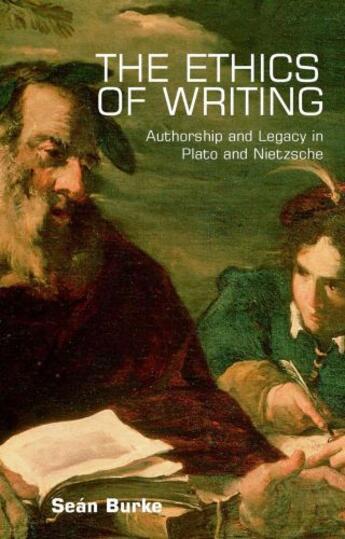-
Nombre de pages : (-)
-
Collection :
(-)
-
Genre :
(-)
-
Thème :
Non attribué
-
Prix littéraire(s) :
(-)
Résumé:
Beginning amidst the tombs of the 'dead' God, and the crematoria at Auschwitz, this book confronts Nietzsche's legacy through the lens of Plato. The key question is how authors can protect against the possible 'deviant readings' of future readers and assess 'the risk of writing'. Burke... Voir plus
Beginning amidst the tombs of the 'dead' God, and the crematoria at Auschwitz, this book confronts Nietzsche's legacy through the lens of Plato. The key question is how authors can protect against the possible 'deviant readings' of future readers and assess 'the risk of writing'. Burke recommends an ethic of 'discursive containment'.The ethical question is the question of our times. Within critical theory, it has focused on the act of reading. This study reverses the terms of inquiry to analyse the ethical composition of the act of writing. What responsibility does an author bear for his legacy? Do 'catastrophic' misreadings of authors (e.g. Plato, Nietzsche) testify to authorial recklessness? These and other questions are the starting-point for a theory of authorial ethics.
Donner votre avis















